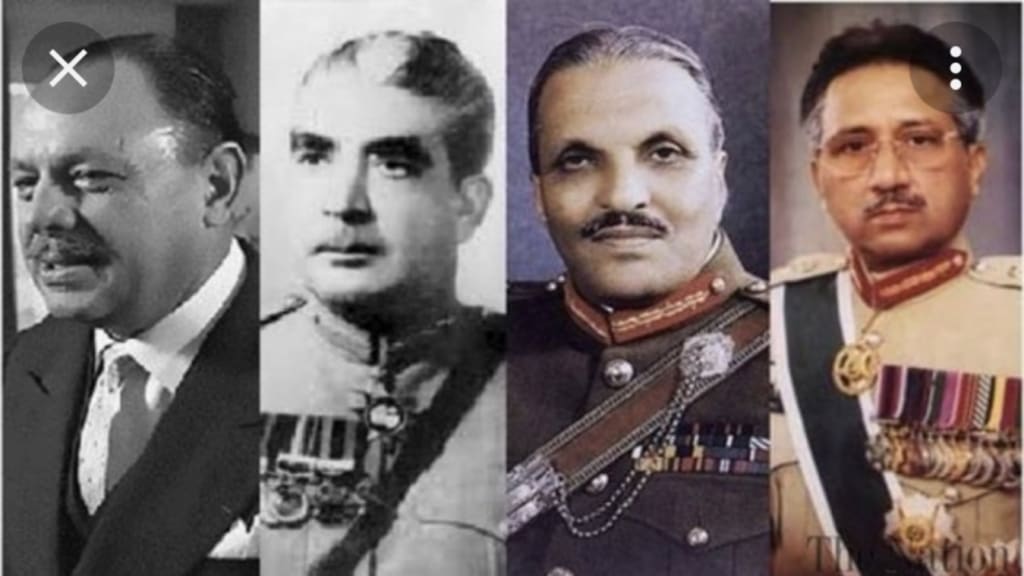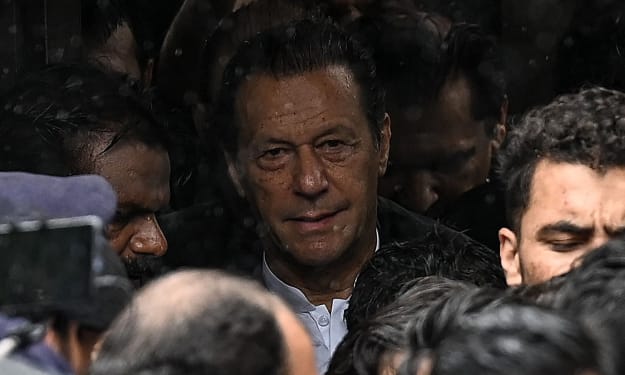
Pakistan has a long and tumultuous history of dirty politics. Since its inception in 1947, the country has witnessed numerous instances of political corruption, nepotism, cronyism, and authoritarianism.
One of the earliest examples of dirty politics in Pakistan was the rigging of the 1954 elections by the ruling establishment. The ruling party at the time, the Muslim League, used state resources and intimidation tactics to ensure their victory. This set the tone for future elections, which were often marred by similar incidents of rigging and voter intimidation.
In the 1970s, Pakistan saw the rise of a populist leader, Zulfikar Ali Bhutto, who promised to usher in an era of democracy and social justice. However, Bhutto's regime was also marked by corruption and authoritarianism. He was accused of rigging elections and suppressing political opponents.
In 1977, Bhutto was overthrown in a military coup by General Zia-ul-Haq. Zia's regime was marked by even greater repression and authoritarianism. He cracked down on political dissent, censored the media, and imposed strict Islamic laws.
In the 1990s, Pakistan witnessed a period of political instability, with frequent changes in government and allegations of corruption against the ruling elites. The military remained a powerful force in Pakistani politics, often intervening in the political process and manipulating elections.
In the early 2000s, Pakistan witnessed the rise of a new political force, the Pakistan Tehreek-e-Insaf (PTI), led by Imran Khan. Khan promised to bring an end to corruption and dynastic politics and to build a new Pakistan based on meritocracy and accountability.
However, despite Khan's promises, his government has also been accused of engaging in dirty politics. There have been allegations of media censorship, political victimization, and cronyism within his government.
Overall, the history of dirty politics in Pakistan is a long and complex one, with no easy solutions. It will take sustained efforts from both civil society and the political establishment to root out corruption, nepotism, and authoritarianism from Pakistan's political system.
The Dirty Politics of Pakistan refers to the long-standing pattern of corruption, nepotism, cronyism, and authoritarianism in the country's political system. This has led to political instability, weak governance, and a lack of accountability, which have undermined Pakistan's democratic institutions and contributed to its economic and social challenges.
Throughout its history, Pakistan has been ruled by a series of military dictators, civilian politicians, and powerful elites who have used their positions of power to enrich themselves, suppress dissent, and maintain their hold on power. This has often been done at the expense of the country's democratic institutions, civil liberties, and the welfare of its citizens.
The Dirty Politics of Pakistan can be traced back to the country's earliest days, with allegations of rigging and voter intimidation in the 1954 elections. Since then, Pakistan has witnessed numerous incidents of election rigging, political violence, and suppression of political opposition.
The military has played a significant role in Pakistani politics, often intervening to protect their own interests and to maintain the status quo. This has led to a culture of impunity and a lack of accountability, with powerful elites and politicians often evading justice for their crimes.
In recent years, there have been some efforts to address corruption and promote accountability in Pakistan's political system. However, progress has been slow, and there are still many challenges that need to be overcome.
Overall, the Dirty Politics of Pakistan is a complex and multifaceted issue that requires a sustained effort from both the political establishment and civil society to address. This will involve building strong democratic institutions, promoting transparency and accountability, and empowering ordinary citizens to hold their leaders accountable for their actions.
About the Creator
Zain Khan
I am an accomplished storyteller with a gift for bringing characters and places to life through my vocal performance. With my rich and expressive voice, I captivate audiences and take them on a journey through my imaginative storytelling.






Comments (1)
Well in the end I do agree with u as in pakistan the politics are very dirty but on the other hand we see that Imran Khan is doing and trying the best to win back the elections and remove curroption more over in his era, pakistan was going in success as its economy was increases and litrecy rate was increasing also